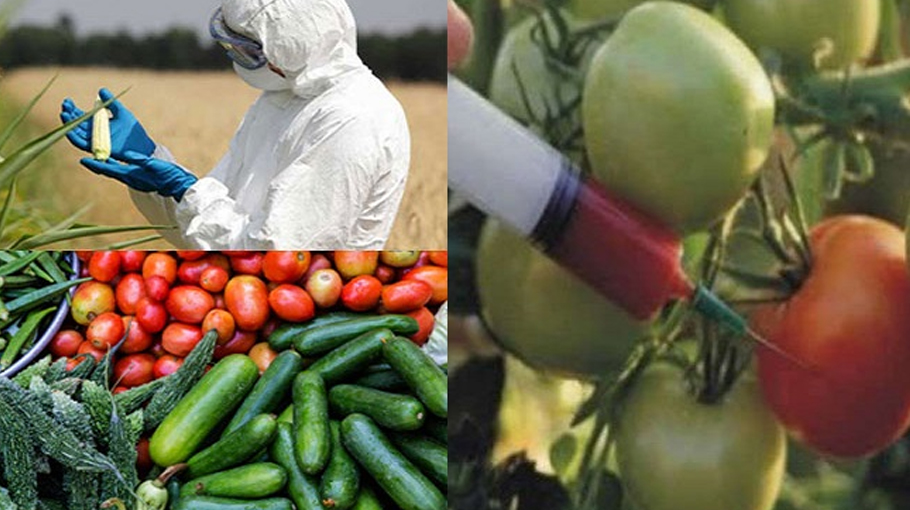Consumption of contaminated veg increases cancer risk
Harmful substances found in fruits, vegetables

Two separate studies have found the alarming presence of pesticide residues in fruits and high levels of heavy metals in vegetables.
The findings of the studies conducted by Bangladesh Food Safety Authority (BFSA) were revealed at a seminar held at the BFSA on Monday.
Dr Mohammad Delowar Hossain Pradhan, Senior Scientific Officer of Bangladesh Agricultural Research Institute, presented the findings of the study on fruits titled “Monitoring of Pesticide Residues and Their Associated Health Risk Assessment in Fruits.”
The research team collected 320 fruit samples, including mangoes, lychees, jujubes, and guavas, from four regions such as Dhaka, Rajshahi, Pabna and Bogura.
Out of these samples, 12.19 percent were found to contain pesticide residues, with lychees showing the highest contamination rate at 18.8 percent, while mangoes had the lowest at 8.8 percent. Of the contaminated samples, 30 contained pesticide levels exceeding maximum residue limit (MRL).
To address the issue, the research team recommended regular monitoring of farmers, the implementation of good agricultural practices(GAP), farmer training, and increased public awareness to mitigate the risks associated with pesticide contamination.
In a separate study, Dr Shafiqul Islam and Dr Mohammad Golam Kibria from Bangladesh Agricultural University examined the presence of heavy metals in vegetables and their associated health risks.
Their research titled “Heavy Metal Contamination in Vegetables and Associated Human Health Risk Assessment,” focused on samples collected from six districts under Dhaka and Mymensingh divisions.
The vegetables analysed included potatoes, eggplants, okra, tomatoes, red spinach, pointed gourds, cabbages, cucumbers, and green peas.
The study found significant levels of heavy metals, including lead, chromium, and cadmium, in the vegetable samples. Red spinach was the most contaminated, with cadmium levels reaching 704.32 micrograms per kilogram, far exceeding maximum allowable limit of 190 micrograms per kilogram.
Eggplants, okra, and tomatoes also showed elevated cadmium levels. Chromium contamination was detected in green peas, cucumbers, okra, pointed gourds, and red spinach, while lead was found in nine vegetables, including eggplants, cabbages, cucumbers, and tomatoes.
The researchers showed that long-term consumption of these contaminated vegetables could increase the risk of life-threatening diseases such as cancer.
Women, in particular, face the highest risk of cancer due to prolonged exposure to cadmium, with their incremental lifetime cancer risk (ILCR) value exceeding safe limits.
While speaking at the seminar as the chief guest, BFSA Chairman Zakaria emphasized the need for strict monitoring and regulation to ensure food safety.
Dr Mohammad Soeb, a BFSA member, delivered the welcome speech while panel discussions featured Dr Mohammad Ariful Islam from Sher-e-Bangla Agricultural University, Dr Shamshad Begum Quraishi from Bangladesh Atomic Energy Commission, and Dr Iqbal Rouf Mamun from Department of Chemistry at Dhaka University.
The session was chaired by BFSA member Dr Mohammad Mostafa and attended by officials from various government departments, food ministry representatives, and media personnel.
The speakers underscored urgent need to tackle food contamination and promote safe agricultural practices across the country.




